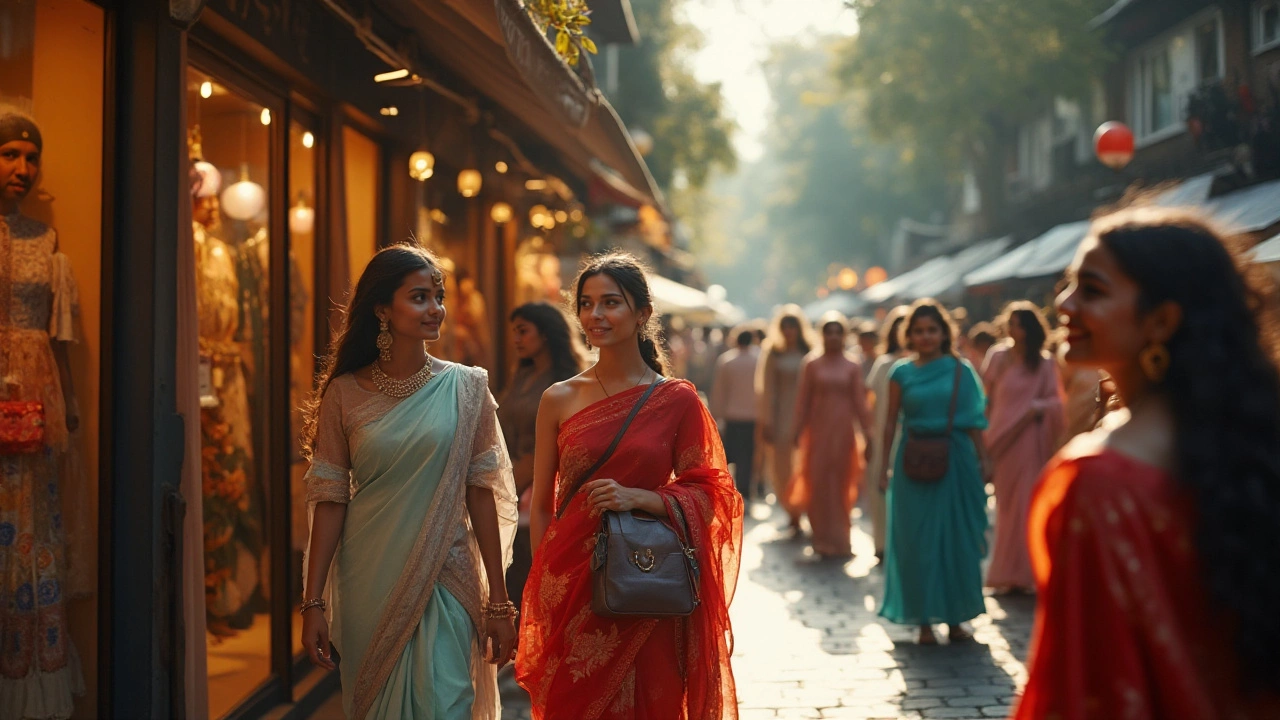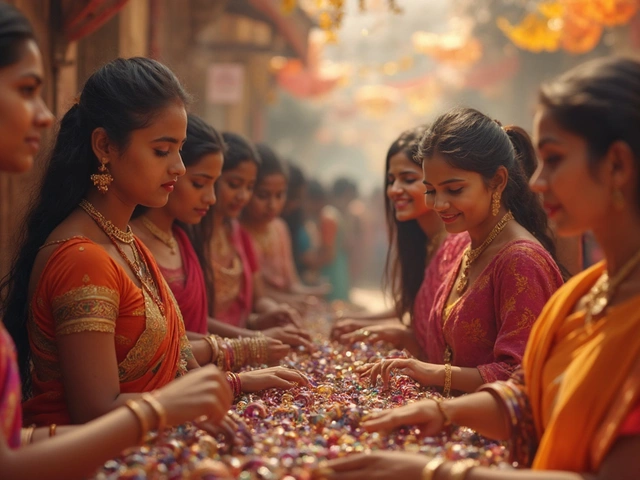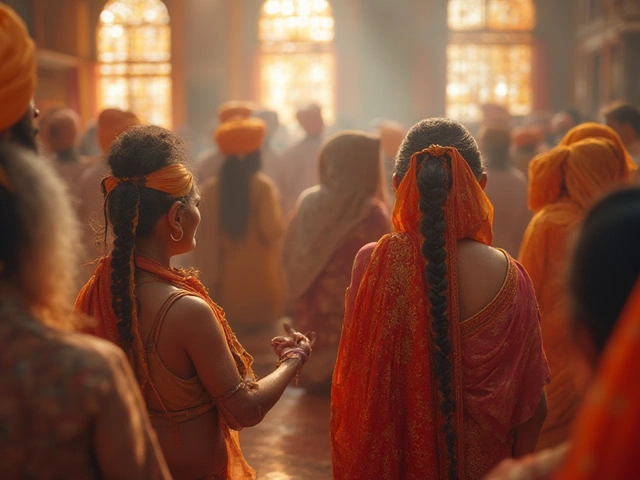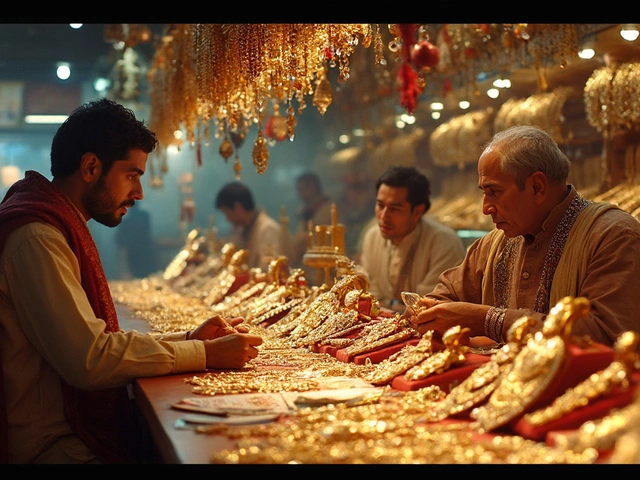India, with its rich cultural heritage and booming middle class, has been increasingly drawn to the allure of luxury fashion. The transition from traditional clothing to high-end brands is more pronounced than ever, reflecting the dynamic shifts in style preferences among Indians. In recent years, luxury fashion brands have made a significant impact, drawing the attention of fashion enthusiasts across the nation.
From globally renowned names like Gucci and Louis Vuitton to local favorites adapting international trends, the Indian market has opened its doors wide to luxurious goods. But what exactly makes these brands resonate so profoundly with the Indian audience? Unveiling their secrets, let's take a closer look at the most celebrated luxury fashion brands defining modern Indian elegance.
- The Rise of Luxury Fashion in India
- Most Popular Luxury Brands Today
- Cultural Influence on Brand Popularity
- Trends and Insights in Indian Luxury Market
- Choosing the Right Luxury Accessory
The Rise of Luxury Fashion in India
India's flirtation with luxury fashion is a fascinating journey that beautifully illustrates the nation's evolving socio-economic landscape. As the country's GDP has steadily risen, so too has the appetite for luxury goods. This burgeoning fascination can be traced back to the opening up of the Indian economy in the early 1990s when international luxury brands began their cautious foray into the subcontinent. Slowly but surely, household names like Gucci and Louis Vuitton started setting up shop, beckoning the affluent and aspirational segments of Indian society to experience a slice of global high fashion.
The growing influence of Bollywood, with its star-studded endorsements of luxury brands, also played a vital role in popularizing these symbols of opulence. From red carpet appearances to exclusive brand ambassadorships, the relationship between India's film industry and luxury brands is symbiotic. Celebrities like Priyanka Chopra and Deepika Padukone, who command immense influence, have frequently been spotted donning the likes of luxury fashion brands at international events. This not only boosts brand recognition but also makes these brands aspirational for middle-class Indians who view them as a gateway to a glamorous lifestyle.
A significant factor contributing to the rise of luxury fashion in India is the country’s young population. India's millennials and Gen Z, tech-savvy and globally aware, have shown a remarkable penchant for high-end fashion. Online platforms have made it incredibly convenient for these digital natives to shop from the comfort of their homes, further fueling the demand. The fact that India's internet usage ranks second globally, adds to this phenomenon, revealing how the digital space is redefining traditional shopping habits.
The luxury market in India has grown by nearly 25% year-on-year over the past decade, according to a Deloitte report. This statistic highlights the expansive growth potential and an increasing inclination towards branded wearable luxury.
Indian traditions and values still hold significant sway, influencing luxury brands to tailor their offerings to suit domestic tastes. The advent of bespoke services, for instance, where brands customize products to reflect Indian cultural motifs or offer personalized experiences, shows the adaptability of these businesses to local demands. This blend of maintaining brand identity while respecting local sensibilities has further accelerated their integration into the Indian market culture.
With this rising tide, luxury brands have adopted sustainability to appeal to conscious consumers. Indian buyers, known for their deep respect for nature and traditional values, are increasingly seeking brands that echo environmentally friendly practices. From using sustainable materials to ethical production processes, luxury brands are evolving to meet these expectations, thus establishing a deeper connection with their audience.
Most Popular Luxury Brands Today
When it comes to the most fashionable luxury brands in India today, giants like Louis Vuitton, Gucci, Prada, and Chanel invariably top the list. Louis Vuitton, with its iconic monogram, stands as an emblem of timeless elegance globally and resonates remarkably well with Indian consumers. The brand's innovative approach, blending classic styles with modern interpretations, continues to capture the hearts of many here, offering a taste of sophistication and class that's hard to rival. The blend of grand heritage and modernization keeps Louis Vuitton at the pinnacle of luxury in India.
Gucci, another stalwart in the world of luxury fashion, is crafted with an Italian flair that captivates the Indian market. Its daring designs and bold colors reflect a fusion of unexpected elements that speak volumes about creativity and cultural diversity. In India, Gucci's eclectic style finds a home among the youth and fashion forward crowd, always seeking to make a unique statement. The brand's creative director, Alessandro Michele, believes in 'freedom of self-expression', including touches that resonate deeply with Indian sensibilities. With standalone stores in major Indian cities, the accessibility and appeal continue to soar.
Chanel, synonymous with elegance and sophistication, is more than just a brand—it's a symbol of refined taste. India, too, is fascinated by Coco Chanel's legacy, which is built on revolutionizing women’s fashion in the early 20th century. The brand’s tweed suits, rich fragrances, and iconic quilted bags are must-haves for many fashion aficionados in the country. Chanel's enduring popularity can be attributed to its commitment to preserving the essence of Parisian chic, which translates perfectly into the Indian fashion consciousness.
Prada stands apart with its minimalistic yet innovative approach, disrupting traditional norms constantly. The brand takes pride in creating experiences rather than just products, drawing in Indians who appreciate the finer things in life that don’t scream for attention but speak to those in the know. Miuccia Prada’s inspirational leadership and revolutionary design ethos ensure that the brand maintains a prestigious position in the Indian luxury domain.
"Luxury is in each detail," Coco Chanel once said. Her words echo in India where attention to detail in fashion has always been a cherished value.
Apart from these established names, Indian consumers have also shown increasing enthusiasm for brands like Hermès, Burberry, and Christian Dior, each bringing a unique flavor to the table. Hermès is revered for its craftsmanship, particularly its sought-after Birkin bags that represent the epitome of luxury fashion. Christian Dior continues to innovate and charm with its balance of tradition and haute couture creativity, captivating Indian fashionistas. Each of these brands contributes to a rich tapestry of high-end fashion accessories in India, building an ever-evolving marketplace that appreciates both tradition and experimentation.
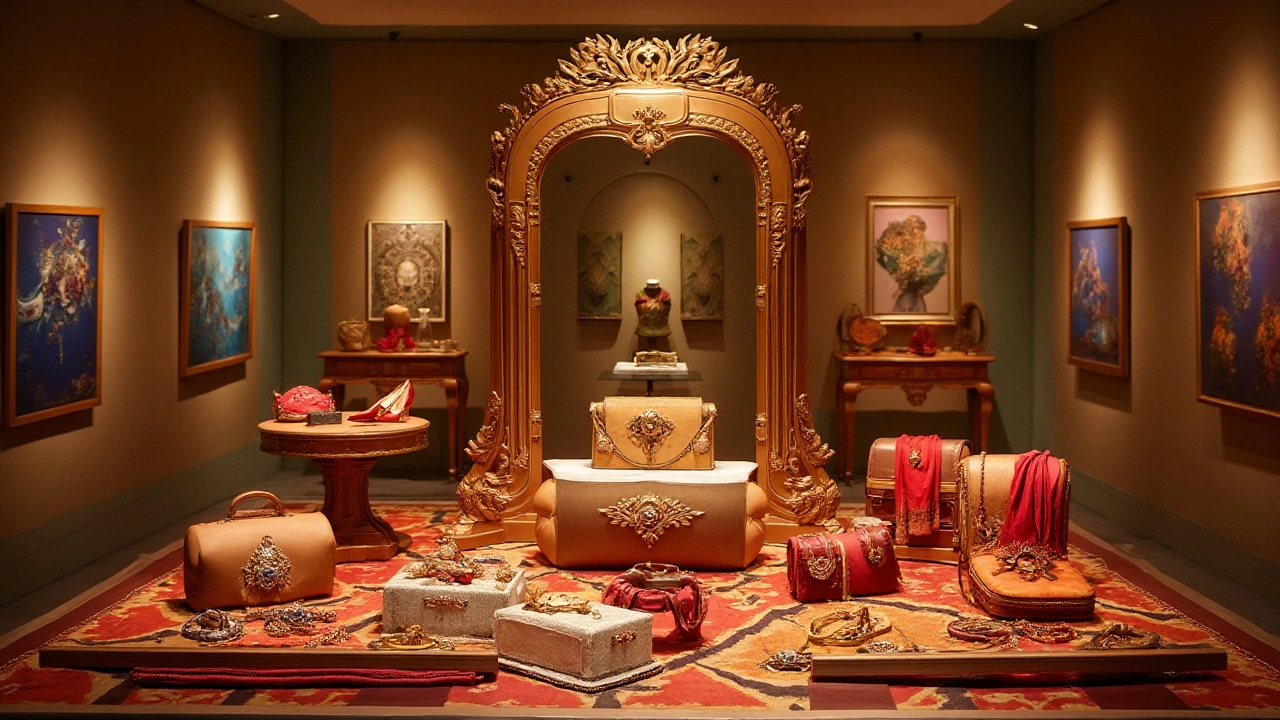
Cultural Influence on Brand Popularity
India is a tapestry of varied cultures, each with its own preferences and style influences. This diversity plays a significant role in shaping the popularity of luxury brands within the Indian market. The Indian love for vibrancy, colors, and intricate designs finds a seamless intersection with the offerings of many global luxury brands. This cultural appreciation for detailed craftsmanship often drives Indians towards brands that respect these aesthetic values in their products. The immersive experience these brands offer, often infused with elements honoring Indian traditions, becomes a magnet for fashion-forward consumers.
When international brands want to capture the heart of Indian consumers, they often weave in traditional motifs or choose colors that resonate well with Indian festivals and celebrations. For instance, the iconic fashion house, Louis Vuitton, introduced a special collection during Diwali that featured elements reflecting the festival’s essence. Such efforts highlight their keen understanding of local customs and enhance their popularity among Indian luxury shoppers.
According to a report by McKinsey & Company, "Localizing the product offerings to match festive occasions has allowed brands to connect better with the customers, leading to increased brand loyalty."
Many luxury fashion accessories brands, keen on nurturing a connection with Indian customers, have collaborated with Bollywood celebrities, who wield considerable influence. These collaborations are not just limited to apparel but extend to accessories like watches, handbags, and jewelry. For instance, Bollywood's fascination with Gucci bags has made the brand a household name. The aspirational value attached to seeing these icons sport such luxury goods cannot be understated, thus elevating brand stature in India. According to a survey in 2022, about 56% of Indian luxury buyers were inspired to make a purchase based on celebrity endorsements. This strategy aligns with the cultural norm of looking up to influential figures for lifestyle inspiration.
The integration of Indian artisans into the manufacturing processes of these brands is another noteworthy trend, marrying local craftsmanship with global luxury standards. The collaboration of local artisans not only empowers communities but also imbues products with an authenticity that appeals to culturally-conscious consumers. This symbiosis is a testament to India's growing importance in the global luxury market, and brands are increasingly nurturing such partnerships. A recent partnership saw Dior utilizing traditional block printing techniques in its latest collection, contributing to a quaint yet rich global dialogue.
Trends and Insights in Indian Luxury Market
The Indian luxury market is a vibrant tapestry, blending international allure with local charm. As urbanization accelerates and disposable incomes rise, the appetite for luxury brands among Indians continues to expand. A notable trend is the growing preference for high-end, yet sustainable fashion. Consumers are no longer just looking for exclusivity, but also eco-friendly options that align with their values. Brands like Gucci and Stella McCartney are winning over Indian hearts with their green initiatives that promise a chic, sustainable future.
Technology is also playing an integral role, as digital platforms bridge the gap between consumers and fashion accessories. Online shopping has soared, offering unprecedented access to luxury products across the nation. Social media's influence cannot be understated; Instagram and influencer culture shape purchasing decisions massively. Indian consumers often rely on digital recommendations before making hefty investments, underscoring the need for compelling online presence by brands.
The traditional opulence associated with Indian weddings is another driving force, with brides and grooms seeking luxury brands to add that extra ounce of grandeur to their special day. As a result, brands are customizing their offerings to cater to these monumental occasions, creating special bridal lines that merge traditional Indian crafts with Western sophistication.
According to Bain & Co., "India's luxury market is set to grow by 10% annually, fueled by increasing wealth and the younger generation's desire for global brands."
This market boom isn't serendipitous; it taps into a deeper psychological shift where millennials and Gen Z place immense value on unique, quality experiences. Yet, they exhibit a deep appreciation for culture. This connection has encouraged brands to incorporate Indian influences into their designs, forming a unique fusion of cultures that's both modern and respectful.
Let's not overlook the role of boutiques and experiential stores in these emerging trends. Consumers seek more than just a product; they want an experience. High-end stores offer exclusivity and personalized services, aspects that further reinforce brand loyalty. Pop-up stores, exclusive fashion shows, and private events are effective strategies used to entice the elite, ensuring that customers feel valued.
Premium quality, cultural integration, technological advancement, and sustainability are the pillars supporting the rise of the luxurious landscape in India. Undoubtedly, it's a thrilling era for fashion enthusiasts in the country as the market continues to teeter on the edge of globalization while holding onto its rich cultural core.
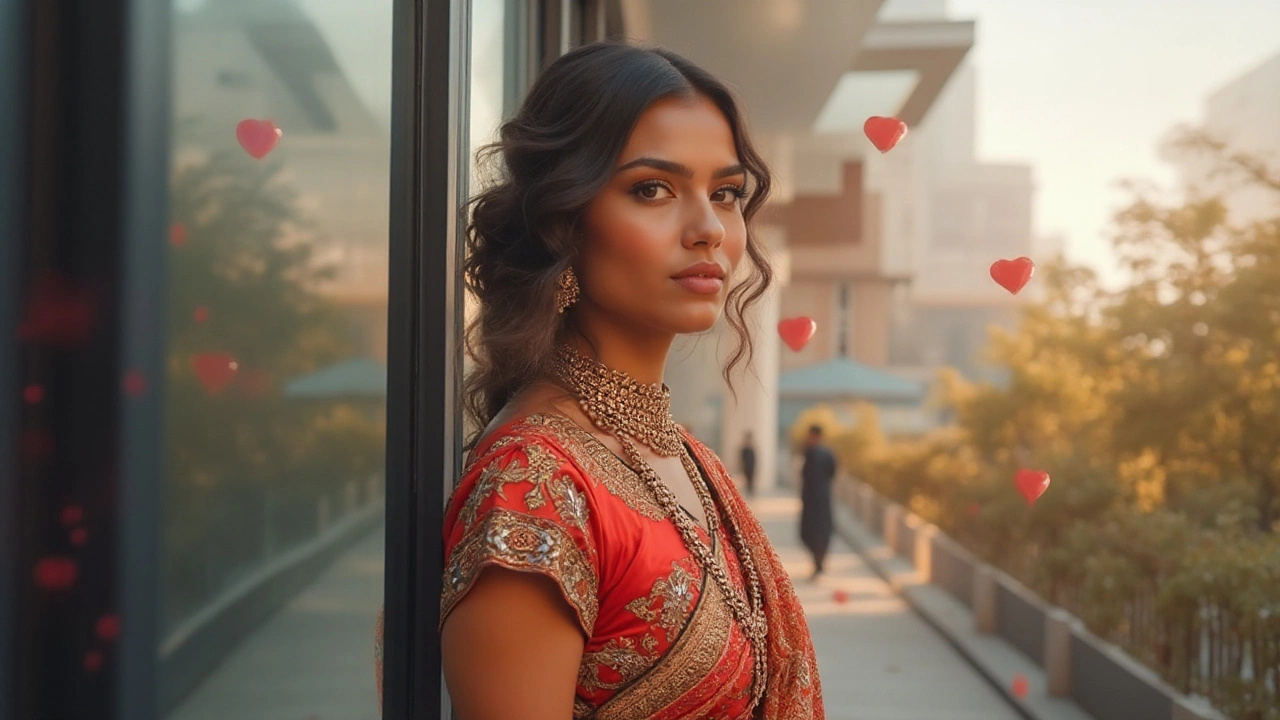
Choosing the Right Luxury Accessory
Delving into the world of luxury brands can be both exciting and daunting. The market is vast, offering everything from opulent handbags to polished watches, each piece promising to transform any outfit and elevate one's style quotient. But how does one navigate through this treasure trove of options to pick the perfect luxury accessory? The key lies in understanding your personal style, the occasion, and, of course, getting value for your investment. When choosing a luxury piece, consider its versatility. Accessories like a classic Hermès scarf or a Bulgari watch have stood the test of time, offering elegance that transcends fleeting trends. In India, where fashion is often about blending tradition with modernity, an accessory that complements both ethnic and western wear could be a game-changer.
Quality craftsmanship is another crucial element to remember. Luxury brands are revered for their meticulous attention to detail; from the stitching on a Louis Vuitton handbag to the diamond setting on a Cartier ring, every aspect is crafted to perfection. This precision comes not just from skilled artisans but from the brand's heritage of excellence. In choosing an accessory, observe the finer details: the material, the craftsmanship, even the sound of the clasp snapping shut or the sliding of a zip. This sensory experience sets luxury apart, a tactile reminder of the investment you're making. Moreover, consider the brand's history and its reputation for durability. After all, a luxury accessory is not merely an expense—it's an heirloom, a part of your legacy.
Functionality without compromise is also pivotal. Perhaps a statement piece of jewelry is what you're after, or maybe a versatile yet stylish pair of sunglasses is required. In either case, functionality must walk hand in hand with style. Take for instance, the fashion accessories that the well-traveled Indian elite prefer. Jewelry from brands like Tiffany & Co. often couples functionality with sophistication, suitable for both boardrooms and banquets. The design must be intuitive, complementing your lifestyle without requiring constant attention. A Patek Philippe watch is not just about telling time, but doing so in a way that aligns with your daily rhythm, offering reliability matched only by its elegance.
For the fashion-forward Indian shopper, aligning brand ethos with personal values can significantly enrich the experience. Many luxury brands today are leaning towards sustainable practices, a trend that resonates well with the conscious consumer. Brands like Stella McCartney and Gucci are pioneering eco-friendly pursuits, integrating sustainable materials into their designs. If this aligns with your personal values, selecting such brands is not just about fashion but a statement of integrity. It's about being chic and conscientious, telling a story that goes beyond fabric and metal.
An excellent approach while selecting a luxury accessory is to consider testimonials or reviews. Seek out what seasoned fashion connoisseurs say about various luxury brands. Often, quotes from influential fashion personalities can provide valuable insights. As Anna Wintour, editor-in-chief of Vogue, succinctly puts it,
“Fashion’s not just about what you wear; it's about how you wear it.”This perspective opens up a world where personal expression and luxury converge, a reminder that the accessory must resonate profoundly with who you are. A trusted recommendation can be the guiding light in your luxury journey, reassuring you that your choice is both trendy and timeless.
